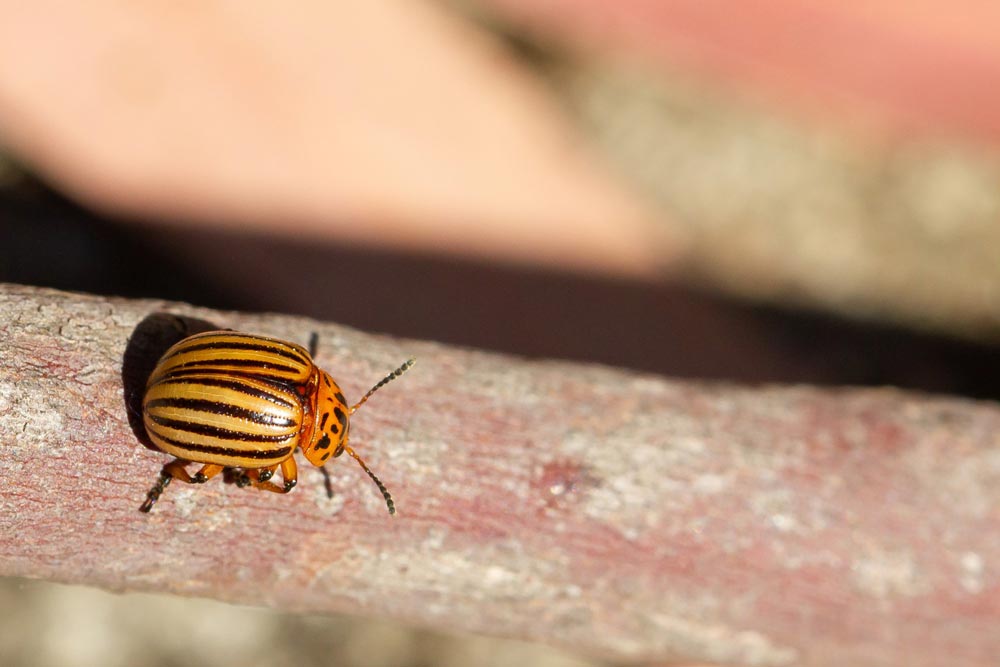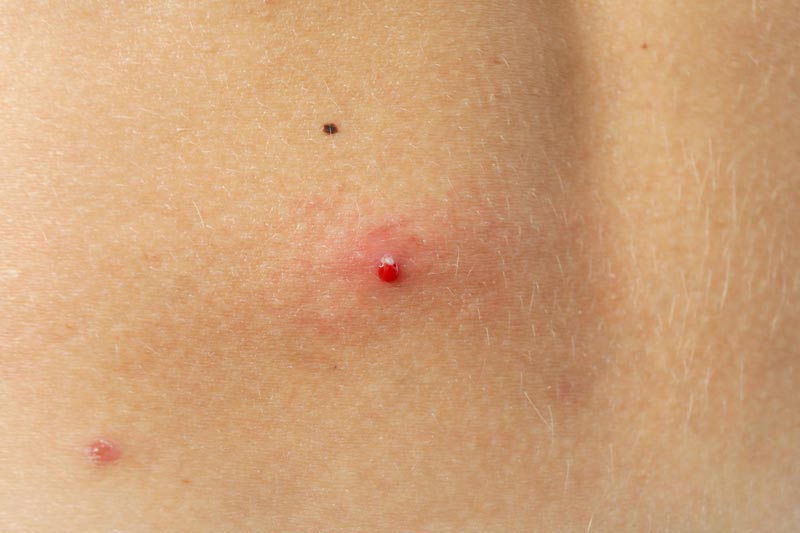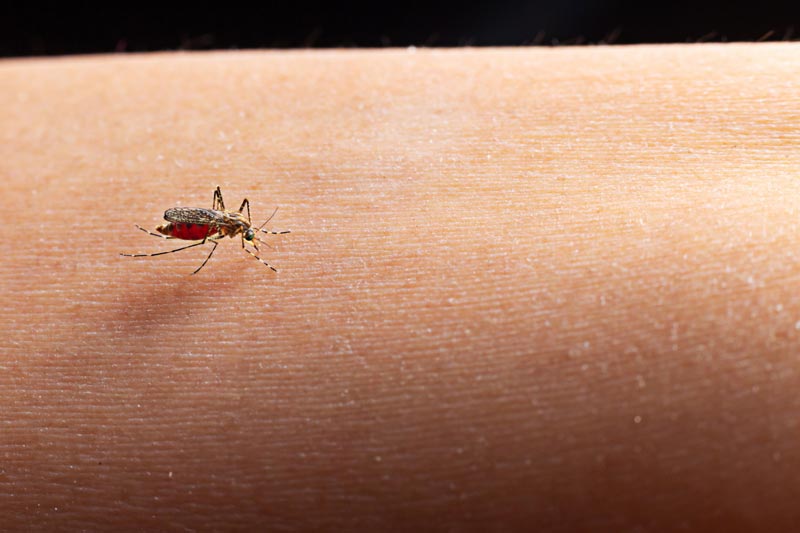
A summer day spent outdoors could be marred by bug bites. Even though they look harmless, some of these pesky insects may bring a host of risks. For instance, mosquito bites can lead to contracting diseases like malaria and West Nile Virus. As such, it is essential to know when you need to visit an urgent care center in Branford, CT, if you get bitten by bugs. Read on for more details about the types of bug bites and their risks, as well as tips on how to reduce your risk of getting one and what to do in case you get bitten.
Mosquito bites are very common during the summer. In fact, these itchy red bumps are the most common insect bites. These bites can be painful and can itch for a few days. The most common mosquito bites are those from the Aedes aegypti species. The Aedes aegypti mosquito is the primary carrier of Zika and yellow fever viruses. You can still get bitten even if you do not travel to an area where these mosquitoes are present. This is because these mosquitoes can breed in even small amounts of water. Mosquito bites can be treated at home by using anti-itch creams or ointments. You should visit a doctor if you notice a rash, fever, or other symptoms. Treatment may include antibiotics or antiviral medications.
Stinging bug bites can be very painful. These bites are often caused by bees, wasps, or yellow jackets. Stinging bug bites usually affect the arms, legs, and hands. You may notice swelling and redness around the bite after a few hours. Stings from bees, wasps, and yellow jackets can cause a serious allergic reaction in some people. This is called anaphylaxis and can be fatal if not treated immediately. If you notice symptoms of an allergic reaction, you should seek immediate medical care. For example, you may have difficulty breathing, have a swollen tongue, or notice a drop in blood pressure. Stings can be treated at home using over-the-counter painkillers and antihistamines. You can also apply ice packs to the affected areas to reduce swelling. If you have a severe reaction, you should visit your doctor. Your doctor can give you an EpiPen before you leave if you are at risk of anaphylaxis.
Ticks are another common insect bite. Even though ticks are small, they can transmit several diseases. The most common ticks found in the United States are the brown dog tick and the American dog tick. You may not even notice a tick bite until it’s too late. You should inspect your body after being in wooded areas or grassy fields to check for ticks. Tick bites can lead to bacterial infections such as Lyme disease. You can also contract other diseases like Rocky Mountain spotted fever and tick paralysis from ticks. Ticks should be removed as soon as you notice them. Use tweezers to pull the tick out of the skin slowly. You should also disinfect the area and your hands to prevent infection. You should visit your doctor if you have been bitten by a tick. Your doctor can test the tick and determine if you need treatment.

Ear, nose, and throat bugs may not seem like a big deal, but they can be very dangerous. Ear and nose bugs can cause painful swelling and infections. These bugs can feed on human blood and cause serious damage to the ear, nose, and throat. Ear, nose, and throat bugs are more common in children. Children are more likely to play with soil and put objects in their ears, nose, and throat that can carry these bugs. Ear, nose, and throat bugs can be treated at home with antibiotics. If you notice a foul smell coming from your ear, nose, or throat or see a small insect crawling inside, you should seek immediate medical care.
A snake bite is one of the few emergencies you can prevent. Avoiding tall grass and wooded areas can reduce your chances of being bitten. Snake bites can be deadly, especially if you don’t get immediate treatment. The majority of snake bites occur on the hand and ankle. You can get bitten while hiking or gardening. Snake bites can cause a lot of damage if left untreated. They can lead to blood clots, infections, and swelling. Snake bites can have a variety of symptoms. These may include swelling, redness, pain, bleeding, and sweating. These symptoms can vary based on the type of snake that bit you. If you get bitten, you should wash the wound with soap and water. You should also keep the wound below the level of your heart to prevent blood clots.
If you’ve been bitten by a bug, there are a few things you can do to reduce your risk of infection:
The first thing you should do is inspect the bitten area. Look for any signs of swelling, redness, or pus. If you notice any of these symptoms, you should visit the nearest DOCS Urgent Care – Branford clinic to get treated.
Once you’ve inspected the area, you should clean it with soap and water to prevent infection. After that, you can apply an antibiotic ointment to the area if you have one.

If you’re experiencing pain or swelling, you can apply a cold compress to the affected area. You should do this for 10-15 minutes at a time.
If you’re in pain, you can take over-the-counter medications such as ibuprofen or acetaminophen. You can also take antihistamines if you’re experiencing itching.
Experts advise individuals to remove ticks as soon as possible once they notice some on their bodies. Use tweezers to grab the tick by the head and pull it out slowly. After that, you should disinfect the area and your hands to prevent infection.
If you’re experiencing severe symptoms or you think you may have been bitten by a poisonous bug, you should visit Docs Urgent Care – Branford right away. Our team of experts will be able to properly diagnose and treat your condition.

Mosquito bites, stinging bug bites, and tick bites are common during the summer. If you get bitten by any of these insects, you should visit your urgent care in Branford, CT, for treatment. If you notice swelling, redness, or pain around the bite, you should also visit your doctor. Depending on the type of bug bite, you may need antibiotics or anti-itch creams. For ear, nose, and throat bugs, you should visit your doctor to receive antibiotics. If you get bitten by a snake, you should go to a doctor immediately. Snake bites can be deadly if left untreated.
Docs Urgent Care – Branford is here to help you with all of your urgent care needs. We offer a wide range of services, including bug bite treatment. Visit us today to receive the care you need.


During this surge in COVID-19 cases, our primary focus is meeting the high demand for tests, and we are seeing higher than usual wait times. This means we are unable to answer most phone calls. Please know that our teams are working very hard during this time to care for as many patients as safely as possible. Please click the button below for answers to common questions. We appreciate your understanding.